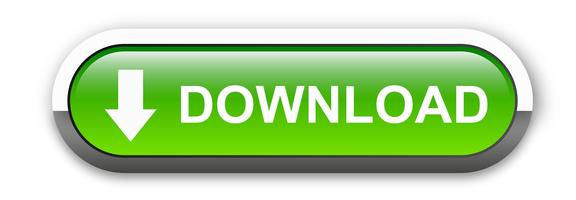Organizational Knowledge in ISO 9001 & Process Excellence
Organizational knowledge could be described as the sum of all knowledge contained within an organization that can provide values to business processes. This knowledge could be acquired from intellectual property, product knowledge, lessons of failure and success, conferences, or customer communications etc. The latest ISO 9001:2015 standard institutes the concept of “knowledge.” As knowledge was not required by the former ISO 9001 standard, the concept of this topic and the method to it are newly introduced in the standard. ISO 9001:2015 states the obligations for managing organizational knowledge in the following four phases:
- Identify the knowledge which is mandatory for the implementation of processes and for acquiring conformity of products and services.
- Keep knowledge and make it accessible to the level needed.
- Be thoughtful of the present organizational knowledge and measure it against contemporary requirements and trends.
- Gain the required knowledge. Knowledge Triangle: How data, information and analysis contributes to knowledge. And finally knowledge converts to wisdom.
 Click Here to Download Readymade Editable Toolkits & Templates on Quality Assurance/Quality Control, Lean Six Sigma, Lean Manufacturing, Six Sigma, ISO 9001, ISO 14001, ISO 22000, ISO 45001, FSSC 22000, HSSE, Project Management etc.
Click Here to Download Readymade Editable Toolkits & Templates on Quality Assurance/Quality Control, Lean Six Sigma, Lean Manufacturing, Six Sigma, ISO 9001, ISO 14001, ISO 22000, ISO 45001, FSSC 22000, HSSE, Project Management etc.
The Knowledge Triangle
- Data
Data can be understood as “unrefined facts and figures." Data are the basis of information in an enterprise. Organizations gather, assesses and analyses this data to recognize patterns and trends. Majority of the data gathered is linked with the main processes of the organization. Data are particulars and statistics which reinforce something particular about a process, but data is not structured in any terms and it gives no further vision concerning trend, forecast and context, etc.
- Information
Each data unit is a fragment of a process which does not give any information until they are defined and ordered in concurrence with other data units. The collection of data into a meaningful context gives information. Data needs to be connected with its background, grouped, formulated and compressed where necessary to produce required information. Information provides a larger picture; it is data with applicability and objective. It may transfer behavior in the environment, or can refer a trend of sales for a timeline. Basically, information is revealed in responses to questions that start with words like what, who, when, where and how much.
 Click Here to Download Readymade Editable Toolkits & Templates on Quality Assurance/Quality Control, Lean Six Sigma, Lean Manufacturing, Six Sigma, ISO 9001, ISO 14001, ISO 22000, ISO 45001, FSSC 22000, HSSE, Project Management etc.
Click Here to Download Readymade Editable Toolkits & Templates on Quality Assurance/Quality Control, Lean Six Sigma, Lean Manufacturing, Six Sigma, ISO 9001, ISO 14001, ISO 22000, ISO 45001, FSSC 22000, HSSE, Project Management etc.
- Analysis
Analysis provides more value to collected information by disconnecting or reorganizing them. Simulations with systematic and logical processing give practitioners the capability to evaluate information and define process, trend, etc.
- Knowledge
Knowledge is not identical to data, information or analysis. It is because knowledge can be generated from any source, or it can be founded on previous knowledge utilizing logical inferences. Knowledge is related to performance and relates how to do and comprehension of a reality. The knowledge owned by each person is an output of one’s experience, and relies on the scale by which a person examines new inputs from his environment. Knowledge can be determined as “an abstract mix of perceived experience, principles, socio-economic and political context, professional awareness, and the emotional elements." All these elements give a surrounding and mechanism for assessing and adding new information and experiences. It initiates and is developed in the intellect of the one who knows. In companies, knowledge is frequently built within organizational culture, norms, and routine activities along with its documentation.
- Wisdom
Wisdom is the use of knowledge out of experience or learning to build an increased comprehension of the reality and to optimize business functions.
 Click Here to Download Readymade Editable Toolkits & Templates on Quality Assurance/Quality Control, Lean Six Sigma, Lean Manufacturing, Six Sigma, ISO 9001, ISO 14001, ISO 22000, ISO 45001, FSSC 22000, HSSE, Project Management etc.
Click Here to Download Readymade Editable Toolkits & Templates on Quality Assurance/Quality Control, Lean Six Sigma, Lean Manufacturing, Six Sigma, ISO 9001, ISO 14001, ISO 22000, ISO 45001, FSSC 22000, HSSE, Project Management etc.
About the Author
Adebayo is a thought leader in continuous process improvement and manufacturing excellence. He is a Certified Six Sigma Master Black Belt (CSSMBB) Professional and Management Systems Lead Auditor (ISO 9001, 45001, ISO 22000/FSSC 22000 etc.) with strong experience leading various continuous improvement initiative in top manufacturing organizations.
You can reach him here.
